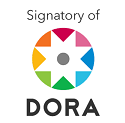Soft skills and organizational communication in university workers
Abstract
The general objective of the research was to analyze soft skills and organizational communication in university workers. It was categorized within a quantitative approach, since its purpose is the study of various phenomena that can be measured objectively. In this sense, it also made use of statistical tools to be able to examine, compare, predict and explain the events that are the subject of study, since its main purpose is to anticipate the occurrence of these events from the use of numerical data through the deductive method for subsequent analysis. The technique considered was the survey. In conclusion, strengthening cognitive competencies to ensure a better understanding and execution of instructions within the organization. In addition, emotional skills play a crucial role in the quality of horizontal communication between workers.
Downloads
References
Daher, W., & Salameh, H. (2022). The Role of a Ministry of Education in Addressing Distance Education during Emergency Education. European Journal of Investigation in Health, Psychology and Education, 12(5), 478-493. https://www.mdpi.com/2254-9625/12/5/36
Escolà Gascón, Á., & Gallifa, J. (2022). How to measure soft skills in the educational context: psychometric properties of the SKILLS-in-ONE questionnaire. Studies in Educational Evaluation, 74(1). https://doi.org/10.1016/j.stueduc.2022.101155
Espinoza, M., y Gallegos, D. (2020). Habilidades blandas y su importancia de aplicación en el entorno laboral: perspectiva de alumnos de una universidad privada en Ecuador. Revista Espacios, 41(23), 109-120. https://n9.cl/6rgxk
Gamboa, V., Rodrigues, S., Bértolo, F., Marcelo, B., & Paixão, O. (2023). Socio-emotional skills profiles and their relations with career exploration and perceived parental support among 8th grade students. Frontiers in psychology, 14, 1214395. https://doi.org/10.3389/fpsyg.2023.1214395
Hamdan, R., Ashour, W., & Daher, W. (2021). The Role of the E-Learning Departments in Controlling the Quality of Electronic Assessments in Palestinian Universities during the COVID-19 Pandemic. Sustainability, 13(21). https://doi.org/10.3390/su132112021
Lamri, J., & Lubart, T. (2023). Reconciling hard skills and soft skills in a common framework: the generic skills component approach. Journal of Intelligence, 11(6). https://doi.org/10.3390/jintelligence11060107
Ma, Y. (2022). Role of communication strategies in organizational commitment, mediating role of faculty engagement: evidence from english language teachers. Frontiers in Psychology, 13(1). https://doi.org/10.3389/fpsyg.2022.921797
Ngo, T. (2024). La importancia de las habilidades blandas para el desempeño académico y el desarrollo profesional desde la perspectiva de los estudiantes universitarios. Revista internacional de pedagogía en ingeniería (iJEP), 14(3), 53-68. https://doi.org/10.3991/ijep.v14i3.45425
Noor, M., Rodzalan, A., Abdullah, H., Saat, M., Othman, A., & Singh, H. (2024). Skills of future workforce: skills gap based on perspectives from academicians and industry players. International Journal of Evaluation and Research in Education, 13(2), 774-783. https://doi.org/10.11591/ijere.v13i2.25163
Osada, J., y Salvador Carrillo, J. (2021). Estudios “descriptivos correlaciónales”: ¿Término correcto? Revista médica de Chile, 149(9), 1383-1384. https://dx.doi.org/10.4067/S0034-98872021000901383
Reyes Barrios, S. A., De La Cruz Arteaga, G. S., Pantigoso Leython, N., y Colina Ysea, F. J. (2023). Habilidades blandas y estrés laboral en especialistas de educación. EPISTEME KOINONIA, 6(12), 119-133. https://doi.org/10.35381/e.k.v6i12.2537
Rodríguez Siu, J., Rodríguez Salazar, R., y Fuerte Montaño, L. (2021). Habilidades blandas y el desempeño docente en el nivel superior de la educación. Propósitos y representaciones, 9(1), e1038. https://doi.org/10.20511/pyr2021.v9n1.1038
Sudarso, D., Prakoso, W., & Widakdo, J. (2022). The effect of soft sk ills on organizational performance: the mediating role of resilient leadership. Global Business and Finance Review, 27(4), 17-26. https://doi.org/10.17549/gbfr.2022.27.4.17
Urbancová, H., Vrabcová, P., & Pacáková, Z. (2024). Communication from below: Feedback from employees as a tool for their stabilisation. Heliyon, 10(7). https://n9.cl/tvr83
Van Horne, C., & Rakedzon, T. (2024). Teamwork Made in China: Soft Skill Development with a Side of Friendship in the STEM Classroom. Education Sciences, 14(3). https://doi.org/10.3390/educsci14030248
Villacorta Méndez, J., Colina Ysea, F., Pantigoso Leython, N., y Valverde Alva, W. (2023). Habilidades directivas y comunicación organizacional interna. Revista Arbitrada Interdisciplinaria Koinonía, 8(16), 32-54. https://doi.org/10.35381/r.k.v8i16.2516
Copyright (c) 2025 Soledad Mercedes Quezada-Berrú, Luis Enrique Alva Palacios-Gómez , Lyli Ana Gastañaduí-Ibáñez

This work is licensed under a Creative Commons Attribution-NonCommercial-ShareAlike 4.0 International License.
CC BY-NC-SA : Esta licencia permite a los reutilizadores distribuir, remezclar, adaptar y construir sobre el material en cualquier medio o formato solo con fines no comerciales, y solo siempre y cuando se dé la atribución al creador. Si remezcla, adapta o construye sobre el material, debe licenciar el material modificado bajo términos idénticos.
URL de OAI-PMH: https://iieakoinonia.org/ojs3/index.php/gestioep/oai














